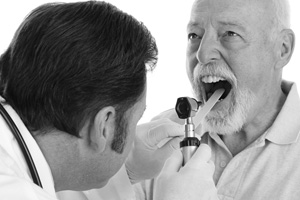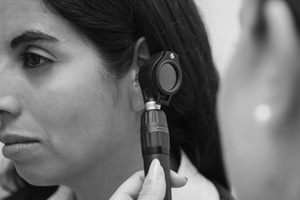View the complete list of conditions
Undergoing Sleep Study Tests
Doing a sleep study is one of the best ways to diagnose any sort of sleep disorder. In Midtown, sleep studies are usually done in a sleep clinic and they take place with nurses and technicians. They don't give you the results, but they are able to create the report and answer any last minute questions you have about the test. They will also make sure you are as comfortable as possible, with the temperature and amount of pillows for example. Once the test is over, a sleep disorder specialist will be the one to give you the results and talk to you about what they mean. Those sleep study results will reveal quite a bit of information about the method of treatment a sleep disorder specialist will recommend for you going forward.
During the study, there is quite a bit to expect. There will be electrodes placed on your scalp, face, chest, arms, and fingers. These electrodes are designed to take a variety of sleep study measurements throughout the night, including your brain activity, blood pressure, heart rates, breathing patterns, and any rapid eye movements. There are also elastic belts placed around your body, designed to measure your breathing and the strength or frequency of your chest movements whilst breathing. The sensors may be attached to wires, which are placed so they don't interrupt your normal sleep habits.
You may experience other tests while doing a sleep study as well. A split night Midtown sleep study will start with the normal sleep study, then use a CPAP machine for the second half. A sleep disorder specialist will adjust the pressure and flow of the machine throughout the night to find the setting that has the best results for you. It will give the sleep disorder specialist reading the results an idea of how your sleep with this method of treatment.
A multiple sleep latency test measures how long it takes you to fall asleep and what stages of sleep you actually enter during sleep. This test is done during the day, usually after the Midtown sleep studies. It can be done four to five times per day with a two hour break in between each test.
Finally, a maintenance of wakefulness test is another of the more common sleep study tests. This test also takes most of the day and simply requires you to stay awake while sitting in a chair. You'll be woken up after about 90 seconds. If you don't fall asleep, the test will last for about 40 minutes.
Conditions
Ears
Nose
- Ballon Sinusplasty Surgery
- Concha
- Deviated Septum Relief In NYC
- Deviated Septums
- Fixing a Deviated Septum
- Identifying A Deviated Septum
- How Do I Know if My Nose is Broken?
- Nasal Polyps
- Nasal Polyp Surgery
- Nasal Septums
- NYC Nasal Polyp Reduction
- Septoplasty And Turbinate Surgery
- Treating a Deviated Septum
- Treating Nasal Polyps
- Turbinate Reduction
Throat
- Dysphagia
- Leukoplakia Treatments
- Reflux Laryngitis
- Swallowing Disorders
- Treating Anosmia
- Vocal Disorders
Allergies & Asthma
- Dealing With Allergic Rhinitis
- Managing Allergies and Asthma
- How to Allergy-Proof Your Home from Indoor Allergens
Sinus
- Chronic Sinusitis Treatment
- Endoscopic Sinus Surgeries
- Sinus Headache Cure
- Sinus Infection Treatment
- Sinusitis Surgery
- Treating Sinus Infections
Sleep & Snoring
- Diagnosing Sleep Disorders
- Having Trouble Sleeping
- Home Sleep Studies
- Pillar Implants
- Pillar Treatment for Snoring
- Sleep Apnea Conditions
- Sleep Apnea Specialists
- Sleepless in NYC
- Sleep Study Diagnosis
- Can Snoring Cause Health Issues?
- Treating Sleep Apnea
- Treating Snoring
- What is a CPAP Device?





